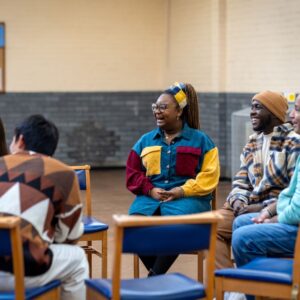In the journey of spiritual leadership, mentorship plays a pivotal role.
Whether you’re a seasoned pastor looking to guide the next generation or a pastor-in-training seeking wisdom and support, having the right resources at your fingertips can make all the difference.
In this article, we’ve curated 21 essential resources designed to enrich the mentoring experience for both mentors and mentees. From insightful books and comprehensive online courses to inspirational podcasts and community forums, these tools are tailored to nurture growth, foster resilience, and enhance pastoral effectiveness.
Dive in and discover how these resources can help you build stronger, more impactful ministry leaders.
Want to download this list? 21 Resources for Mentoring Pastors and Pastors in Training Download
Blog Posts
How to Provide A Great Internship Experience at Your Church. The Unstuck Group, 2016.
6 Keys to a Thriving Internship Program for Your Church. Vanderbloemen, 2016.
Program Models
Becoming a Pastor: Reflections on the Transition into Ministry. James P. Wind and David J. Wood, Alban Institute Report.
Developing a Mentoring Model, Based on Christ’s Approach to Discipleship, for Intern Pastors in the British Union. Desmond Boldeau, 2014, Dissertation.
Gray’s Mentoring Model. Mentoring Relationships that Work, William Gray, 2011.
Guide to Pastoral Internships. Fund for Theological Education, 2012.
Mentored Ministry: Guide for Mentors. Timothy Z. Witmer. Westminster Theological Seminary, 2003.
Books
Connecting: The Mentoring Relationships You Need to Succeed in Life. J. Robert Clinton and Paul Stanely. NavPress, 1992.
Mentoring: The Promise of Relational Leadership. Walter C Wright. Wipf and Stock, 2013.
Mentor for Life: Finding Purpose through Intentional Discipleship. Natasha Robinson. Zondervan, 2016.
The Potter’s Rib: Mentoring for Pastoral Formation. Brian Williams. Regent College Publishing, 2005.
Transforming the Rough Places: the Ministry of Supervision. Kenneth Pohly. Wipf and Stock, 2016.
Welcome to Theological Field Education, Chapter 2, “The Art of Supervision and Formation” by Charleen Jin Lee. Rowan and Littlefield, 2011.
Journals
Reflective Practice: Formation and Supervision in Ministry
Other Media
Dallas Theological Seminary Mentoring Intro: Includes 4 short videos and a list of frameworks
Dallas Theological Seminary Mentoring Resource Page
Organic Mentoring Video, Barbara Neumann and Sue G. Edwards
Podcast: “Best Practices in Church Internship Programs” by Rich Birch of unseminary
Webinar: The Pastor as Mentor. Dr. Mark Walker
Organizations with Additional Resources
Association for Pastoral Supervision and Education (APSE)
The Institute of Pastoral Supervision and Reflective Practice
_______________________________________________________________________________________
Looking for additional leadership help?
Too many people dive into world-changing work, only to become discouraged, disillusioned, and burnt out. Strengthening individuals is the first step towards building strong organizations and flourishing communities. Find out more about The Center’s individual programs here.










0 Comments